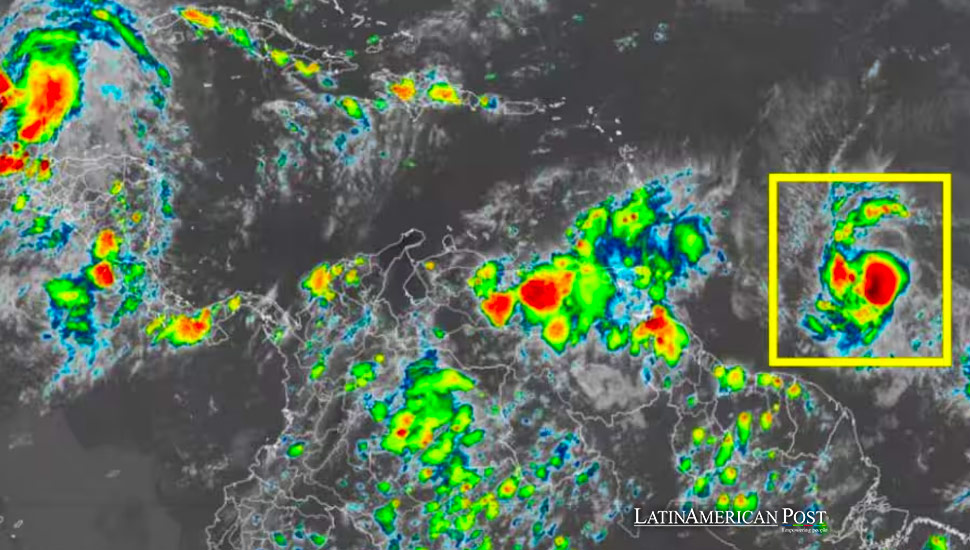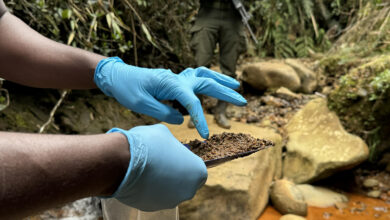Eastern Caribbean Braces for Impact as Hurricane Beryl Approaches

The Eastern Caribbean is on high alert as Hurricane Beryl, now a category 4 storm, nears. Territories such as Barbados, St. Lucia, Grenada, Trinidad and Tobago, and St. Vincent and the Grenadines have implemented preventative measures, including school and business closures.
The Eastern Caribbean is bracing for the potentially devastating arrival of Hurricane Beryl, a category 4 storm expected to bring dangerous winds and storm surges. The National Hurricane Center (NHC) has forecasted that Beryl will reach the Windward Islands, prompting several nations to establish emergency protocols. As the storm approaches, local governments are taking urgent steps to protect their populations and mitigate damage.
Sabu Best, director of the Barbados Meteorological Service, warned that the eye of Hurricane Beryl is expected to pass approximately 70 miles (112 kilometers) south of Barbados on Monday morning. In response, Barbadian Prime Minister Mia Mottley announced a ban on public events starting at 8:00 PM local time (00:00 GMT) to ensure public safety.
The government of Trinidad and Tobago has escalated its tropical storm warning to a hurricane alert for Tobago. Similarly, the government of St. Lucia has ordered the closure of all public and private sectors. Prime Minister Phillip Joseph Pierre has urged citizens to stay indoors until the all-clear is given. This proactive response underscores the region’s commitment to safety and preparedness.
St. Vincent and the Grenadines Prime Minister Ralph Gonsalves also called on residents to take all necessary precautions as heavy rainfall from Hurricane Beryl is expected to cause significant flooding in Kingstown’s capital. Gonsalves emphasized the importance of preparedness, given the forecasted conditions.
Grenada, set to host the annual Caribbean Community (Caricom) leaders’ meeting from July 3 to 5, is also bracing for the hurricane. Prime Minister Dickon Mitchell has not decided to postpone the summit but has urged Grenadians to “pray and prepare” for Beryl’s potential impact. The National Disaster Management Agency (NaDMA) will provide guidance and recommendations to residents.
The Broader Impact on the Caribbean
Jamaica is not directly in Beryl’s path. Still, Prime Minister Andrew Holness has advised Jamaicans to stay alert and take preventive measures as the hurricane is predicted to pass 150 miles (241 kilometers) off Jamaica’s coast on Wednesday. The Jamaican government emphasizes the need for vigilance and preparedness to mitigate potential storm effects.
The impending hurricane has led to widespread concern across the Caribbean. Residents have flocked to supermarkets to stock up on essential supplies, anticipating disruptions caused by the storm. This proactive behavior reflects the region’s experience with hurricanes and the importance of early preparation to minimize damage and ensure safety.
The Atlantic hurricane season began on June 1 and has already seen two tropical storms, Alberto and Beryl. Hurricane Beryl, the first hurricane of the season, has intensified fears of a particularly active hurricane period. According to the United States National Oceanic and Atmospheric Administration (NOAA), the 2021 Atlantic hurricane season is expected to be significantly above average, with up to thirteen hurricanes forecasted, seven of which could be significant.
This forecast underscores the need for Caribbean nations to bolster their disaster preparedness and response strategies. Historically, the region has faced significant challenges in managing the impacts of severe weather, including infrastructural damage, economic losses, and human casualties. The anticipation of a more active hurricane season this year adds urgency to the need for effective planning and resource allocation.
A Unified Regional Response
The coordinated response across the Eastern Caribbean not only highlights the importance of regional collaboration in disaster management but also reassures the audience of the region’s preparedness. Countries share information, resources, and strategies to enhance their collective resilience, instilling confidence in the region’s ability to handle such crises.
The Caribbean Disaster Emergency Management Agency (CDEMA) facilitates this cooperation. CDEMA helps ensure a comprehensive and effective response to hurricanes and other natural disasters by providing support and coordinating efforts among member states. The agency’s work is particularly critical during an active hurricane season, as it helps streamline efforts and maximize the use of available resources.
Amidst the preparations and official directives, the resilience of the Caribbean people shines through. In Barbados, St. Lucia, Grenada, Trinidad and Tobago, and St. Vincent and the Grenadines, communities are coming together to support one another. Stories of neighbors helping each other secure homes, share supplies, and offer emotional support reflect the enduring spirit of the Caribbean.
For instance, in St. Lucia, local businesses have opened their doors to provide shelter and resources to those in need. In Trinidad and Tobago, community groups are organizing to ensure that vulnerable populations, such as the elderly and disabled, receive the assistance they need to weather the storm. These acts of kindness and solidarity are a testament to the strength and unity of Caribbean societies.
As Hurricane Beryl approaches, the focus remains on immediate safety and preparedness. However, the lessons learned from this and previous hurricanes will be crucial in shaping future disaster response strategies. Caribbean nations must continue to invest in infrastructure, enhance early warning systems, and promote community-based disaster risk reduction to build long-term resilience.
The threat of climate change adds another layer of complexity to these efforts. Rising sea levels, increasing temperatures, and more intense storms are likely to exacerbate the challenges faced by the Caribbean. Therefore, regional and international collaboration will be essential in addressing these issues and supporting sustainable development in the region.
Strength in Unity
The response to Hurricane Beryl is a testament to the strength, unity, and resilience of the Caribbean people. As the Eastern Caribbean braces for impact, the coordinated efforts of governments, communities, and regional organizations highlight the collective strength and determination to overcome these challenges, inspiring hope for the future.
Also read: Central America Faces Devastating Floods and Landslides from Relentless Rains
By learning from this experience and continuing to improve disaster management practices, the Caribbean can better protect its people and build a more resilient future. The solidarity and resilience displayed in the face of Hurricane Beryl are a powerful reminder of the region’s ability to come together and support one another, no matter the adversity.




